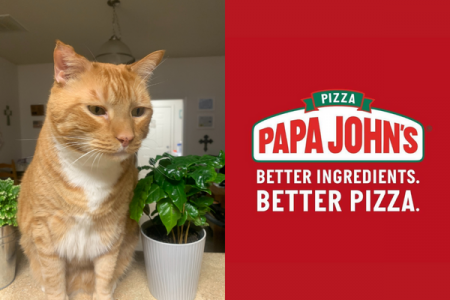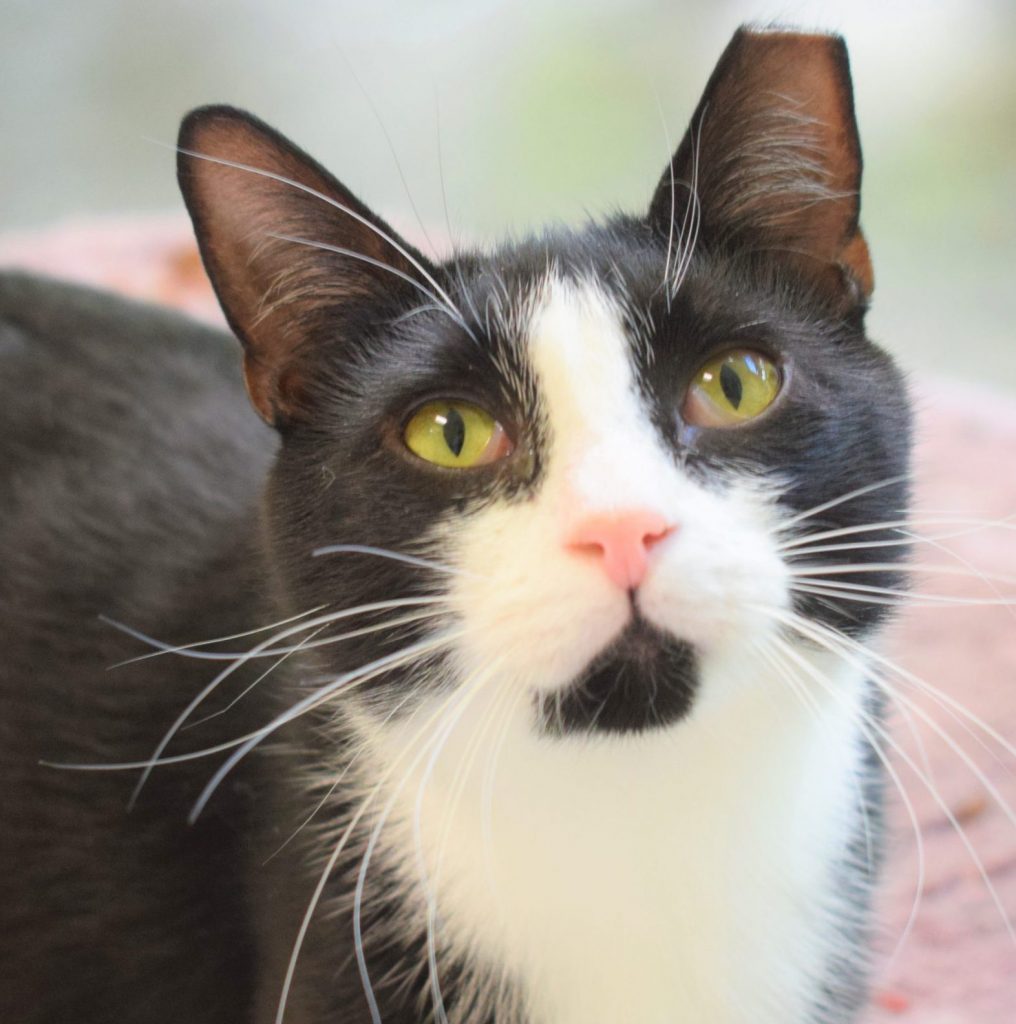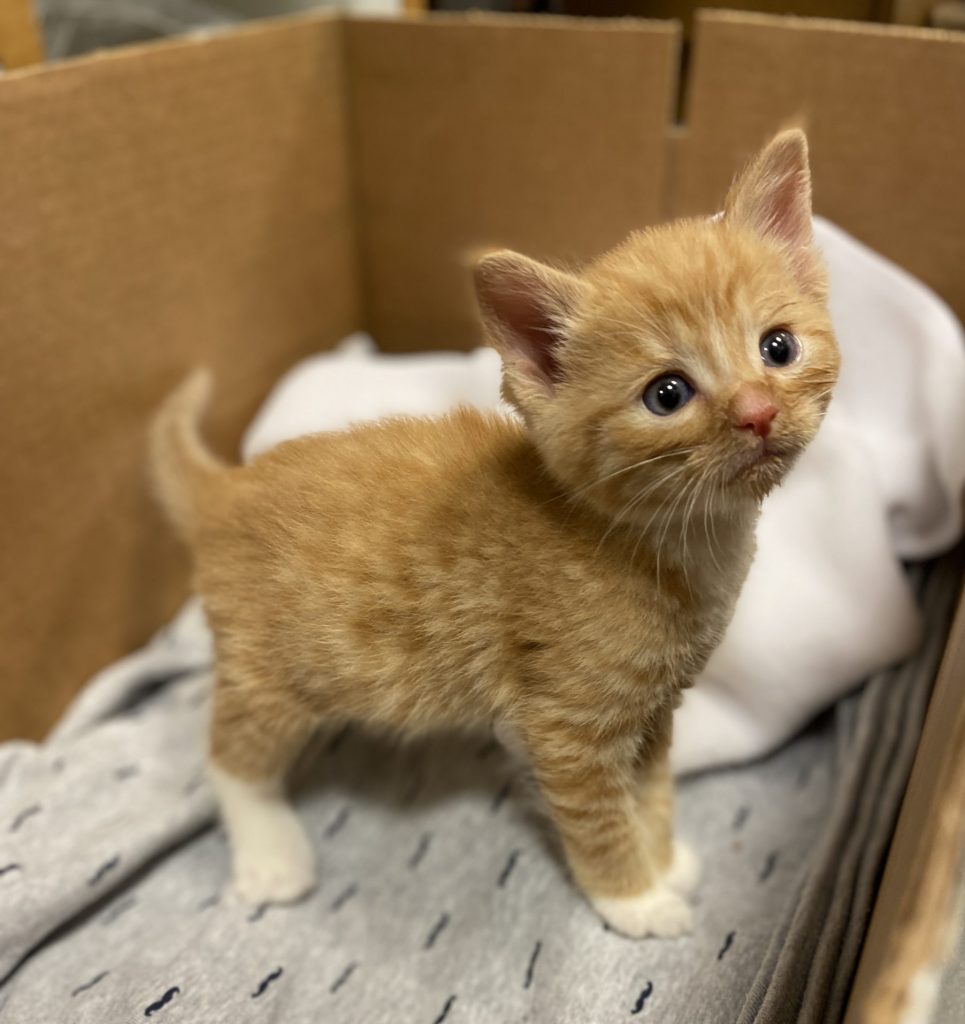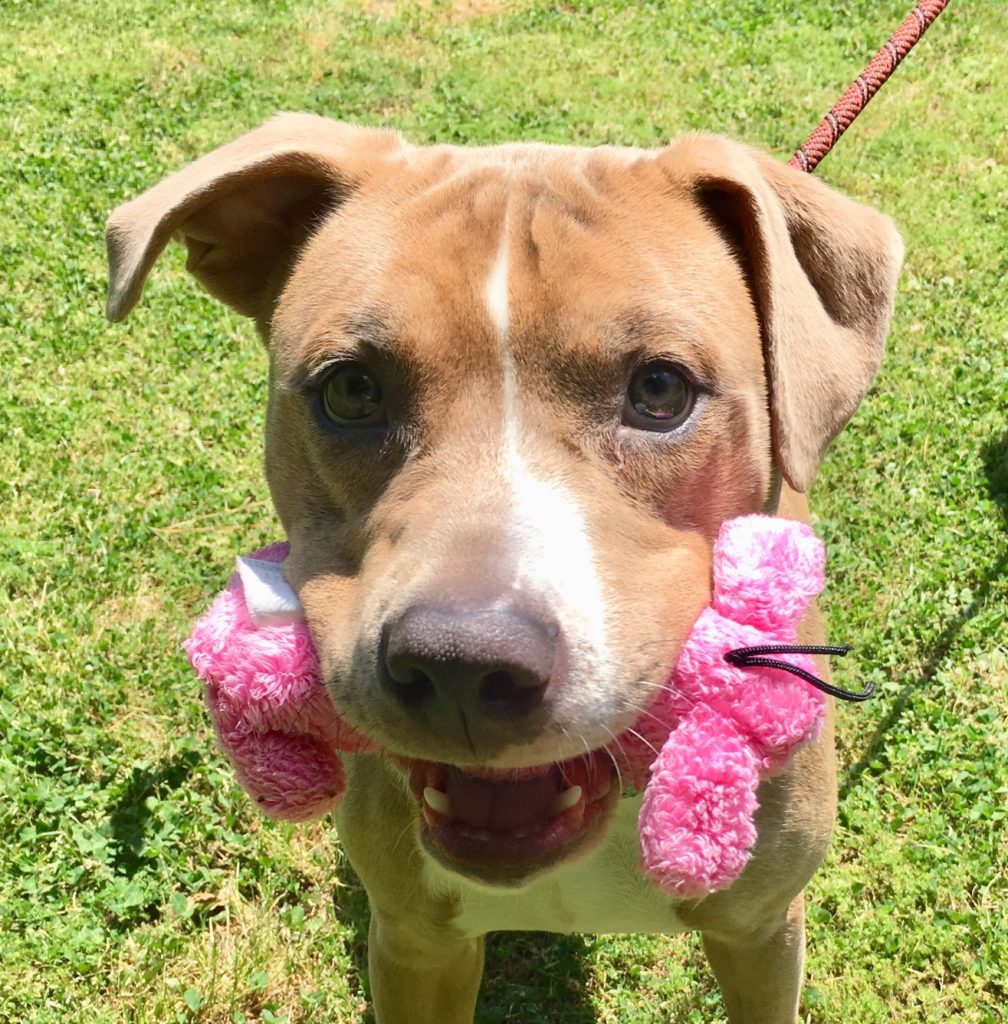 This article was featured in WYDaily on 9/29/23.
This article was featured in WYDaily on 9/29/23.
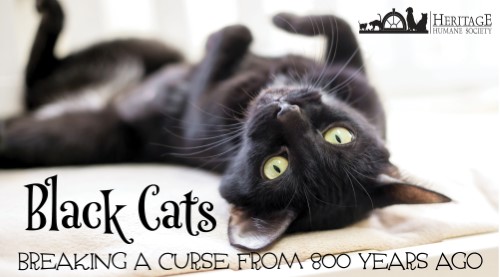
The Heritage Humane Society asks: Do you know black cats are symbols of good luck, have color-changing powers, and often have the most loving temperaments? These are a far cry from the harmful, yet still lingering disdain set forth in 1233 when Pope Gregory IX declared war on cats, particularly black cats he deemed to be evil. While he also disliked frogs and toads, almost 800 years later, the innocent black cat is still affected by the staying power of this falsehood. Come along for more myth busting as the shelter welcomes Black Cat Autumn.
Truth: Many cultures celebrate black cats
In many cultures today, black cats are seen as auspicious creatures that can bring happiness and fortune to their owners. In Scotland, England, and Ireland, it is considered good luck to have a black cat cross your path. In Japan, black cats are often given as wedding gifts to bring happiness to the couple. Russians believe that black cats can protect your home from evil spirits.
Truth: Black cats are sought for good luck
Black cats have been associated with good luck and prosperity for centuries. In ancient Egypt, they were revered as symbols of the goddess Bastet. British and Irish sailors believed that black cats could bring good luck to their ships and protect them from dangerous weather.
Truth: All black is actually uncommon
While it is easy to characterize at a glance, most black cats actually have some other coloring in their whiskers, paw pads or random patches of fur. Black cats often hide their tabby identities, so next time you see one, look closely for the tell-tale stripes. While black is the genetically dominant color in cats, all-black cats are rare.
Truth: Color-changers characters
Cats love laying in the sun. Black cats who do so may find that the UV rays can break down the black pigment in their fur, changing it to a rusty color. The affected fur will remain discolored, but once shed, will be replaced by fresh black fur once again. With the hyperdose of melanin that makes their fur so dark, black cats often have amber colored eyes, a rarity for humans.
Truth: Genetically superior
In the early 2000’s, researchers at the National Institutes of Health discovered that the genetic mutations that cause cats to have black coats may offer them some protection from diseases. In fact, the mutations affect the same genes that offer HIV resistance to some humans. Since the diseases cats suffer from can include ones humans also get such as cancer, black cats are a source of interest in studying how the health of humans can become more resilient.
Truth: Cat lovers who favor black wardrobe staples win
For black cat owners who also favor black shirts, pants and dresses are in luck – they can skip the lint roller when in a time crunch!
Meet the shelter’s adoptable black beauties
The Heritage Humane Society invites you to join in Black Cat Autumn. Celebrate the season with these sweeter than sugar spellbreakers:
-
Turtle. This little lady just finished her motherly duties and is now spayed, up-to-date on vaccinations, and ready to be the one taken care of in a fur-ever home. Her foster shares, “Turtle is very sweet and petite. She enjoys being petted and is very curious. She likes to chase the laser light around and kick around pipe cleaners or little toy mice. Once she is comfortable with you she will climb up the cat tree to relax and you can see her beauty. Her fur is silky black velvet. She is very well-behaved. She gets along with cats with slow introductions. Turtle has also been exposed to dogs, which she was fine with as long as they all just do their own thing. She has great litter box manners. Please stop by to see her. You will fall in love with her.”
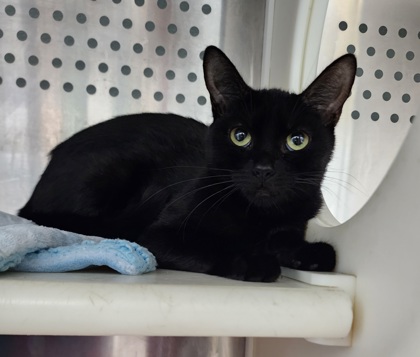
-
Mina. Three-year-old Mina is an adorable mini panther who came to The Heritage Humane Society as a stray. She was found abandoned in a building in Richmond. Sweet Mina is a bit on the shy side, however, give her a cozy bed and a window to enjoy some bird watching and she will be in pure heaven. You can visit with Mina at Schwartzy’s Cat Cove in New Town Williamsburg.
The Heritage Humane Society has nearly 220 dogs, cats and small pets currently in their care. Adoptable pets are available to meet during The Heritage Humane Society’s visiting and adopting hours from 12 to 4:30 p.m., Tues. through Sun.
To learn more, visit HeritageHumane.org, call 757-221-0150, or visit The Heritage Humane Society located at 430 Waller Mill Rd, Williamsburg, VA 23185.
Sponsored content by
